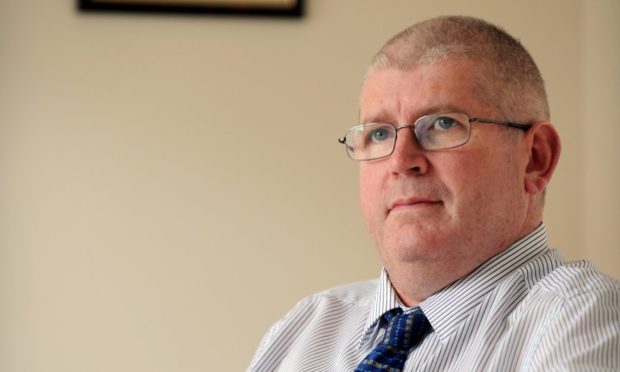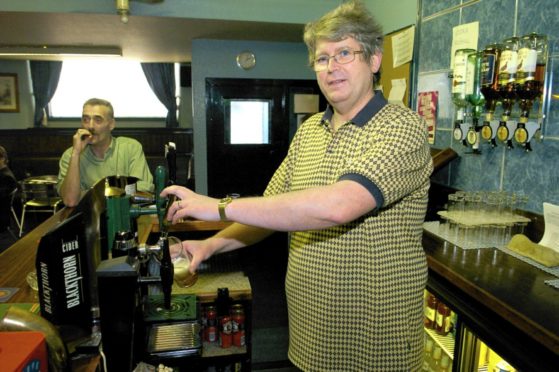An Aberdeenshire dad has revealed that he was robbed of all his memories and unable to recognise even his wife and children after suffering a stroke.
Charlie Wilson was just 44 when he woke up without any sensation on the right side of his body in 2008.
It did not take long for his horrified wife Jackie to realise the overnight stroke had affected his mind as well as his body, completely wiping his memory.
In an interview today as part of Jane Garvey’s series Life Changing on BBC Radio 4, Mr Wilson spoke about the devastating impact of that day.
The former pub landlord said that after being taken to hospital and assessed, nurses called his wife through.
“She pretty much introduced herself to me, I had no idea who she was,” Mr Wilson, of Kintore, said.
“She just said, ‘Hi, I’m Jackie, I’m your wife,’ and I was going, ‘Aye, very good.’ I had absolutely no idea.”
Starting afresh
Doctors warned the father-of-two that there was a chance his memories would gradually return, but they still have not 13 years later.
Instead, he has been forced to begin afresh, relying on trust to get him through.
He said: “Every guy I know in a couple of the bars in Aberdeen, to the man, told me I was due them £40.
“Now, if one or two of them had come up with a different amount, I might have started to believe it.”
More serious was the impact on his daughters Chloe, who was two at the time, and Sophie, who was eight.
Mr Wilson said: “The snag I did have was with my eldest daughter.
“She remembered that I had no idea who I was when she came running across to the bed, I didn’t have a clue.
“Through the teen years, that was brought up more than once.
“But my wife Jackie, she was brilliant with them, she looked after them and talked them through it.”
Desperate relatives
When he was able to return home, Mrs Wilson took her husband through their their wedding album and pointed out relatives – but all he could see were strangers.
He had got used to what his parents looked like over the course of their many visits to hospital, and his children – who visited once a week – but he admitted he did not think they believed he had really lost all his memories.
“My mother would tell me stories about everything that happened way back,” Mr Wilson said.
“She thought that would stick in my memory and help the thing, but it didn’t really.”
The struggles from the stroke were physical as well as mental, and Mr Wilson had to relearn how to walk while also getting used to being left-handed.
For that, he was helped by Aberdeen-based charity Momentum.
Long walk back to life
Over a year, Momentum supported his rehabilitation, not only giving him his strength back and showing him how to “retrain the memory”, but also getting him back into work by organising a placement which led to a job at Aberdeen University.
Previously, he had worked as a finance director and run the Seaton Arms on Aberdeen’s King Street.
He said: “It’s thanks to them that I can now meet people, do various things and use all the tricks – stick stuff on my phone, use the computer, take notes, all that sort of stuff, as well as the mental side.”
In the years since, the training and support has allowed him to regain his footing on a world he had lost – thanks in no small part to the family he had to teach himself to recognise and trust.
He said: “The way I looked at it was that they were willing to stick with me, so it must be true. Therefore, let’s see what we can do.”

